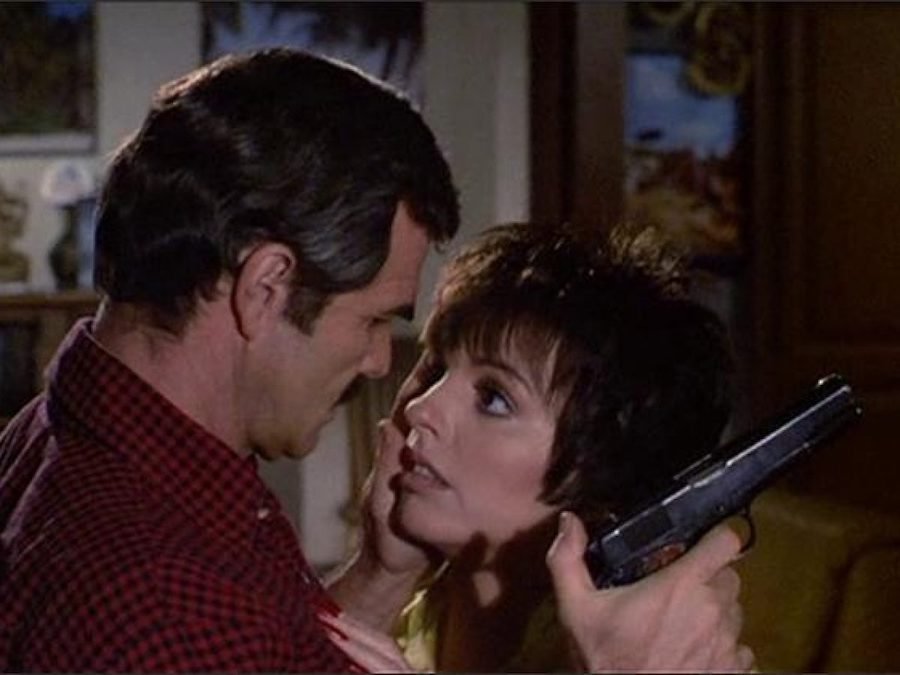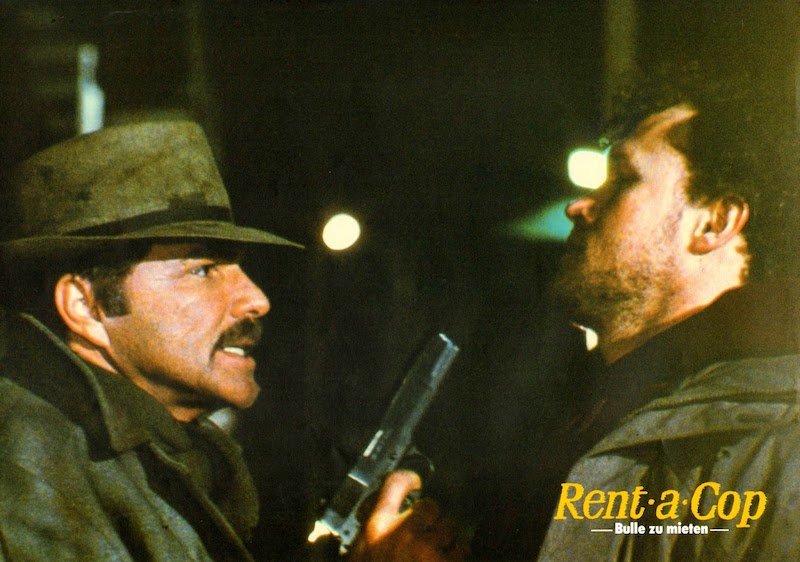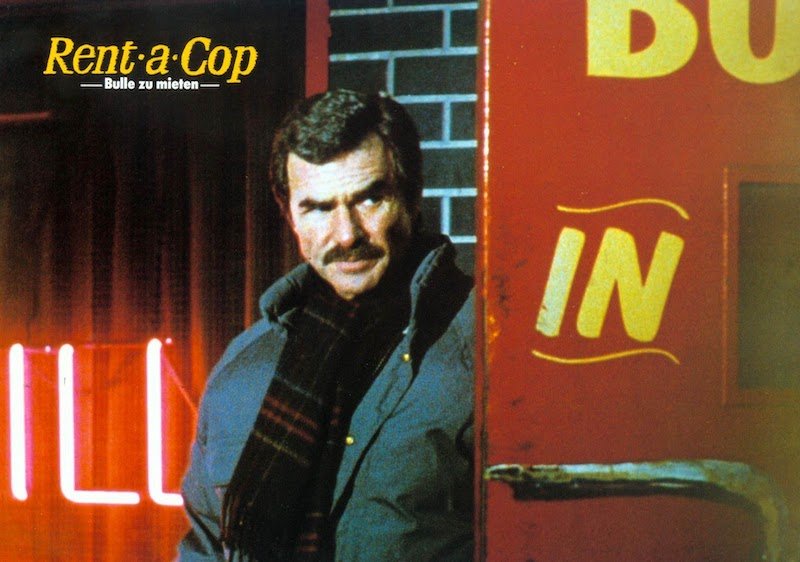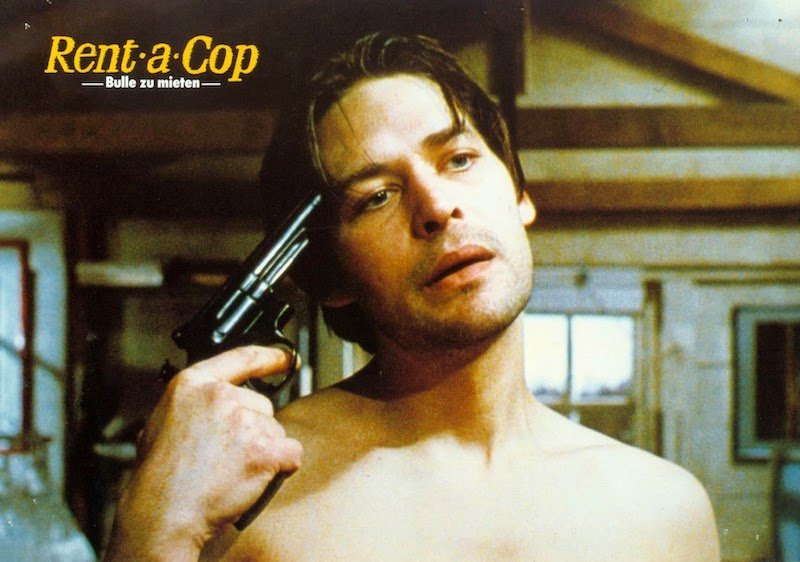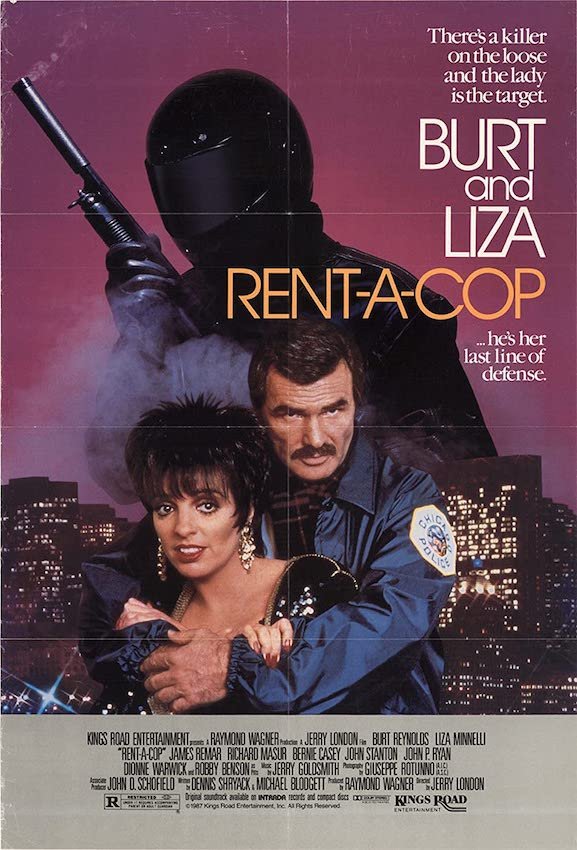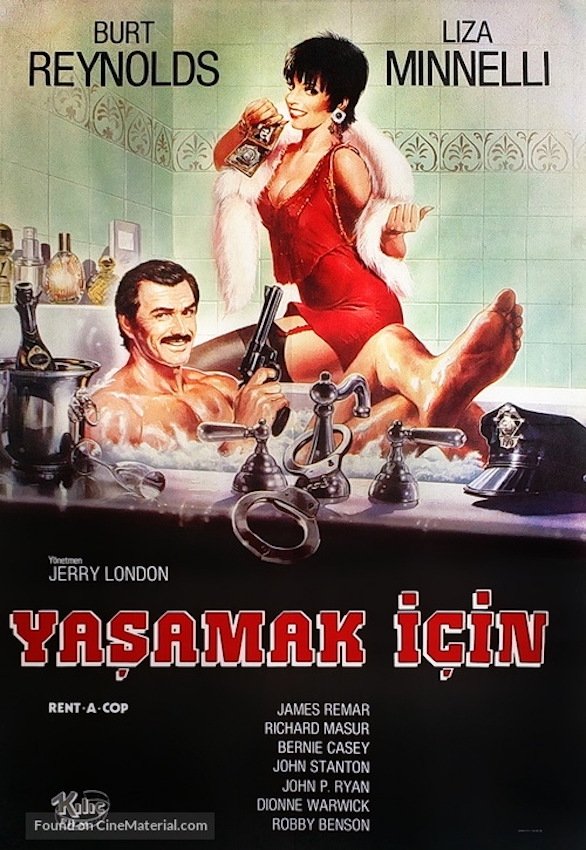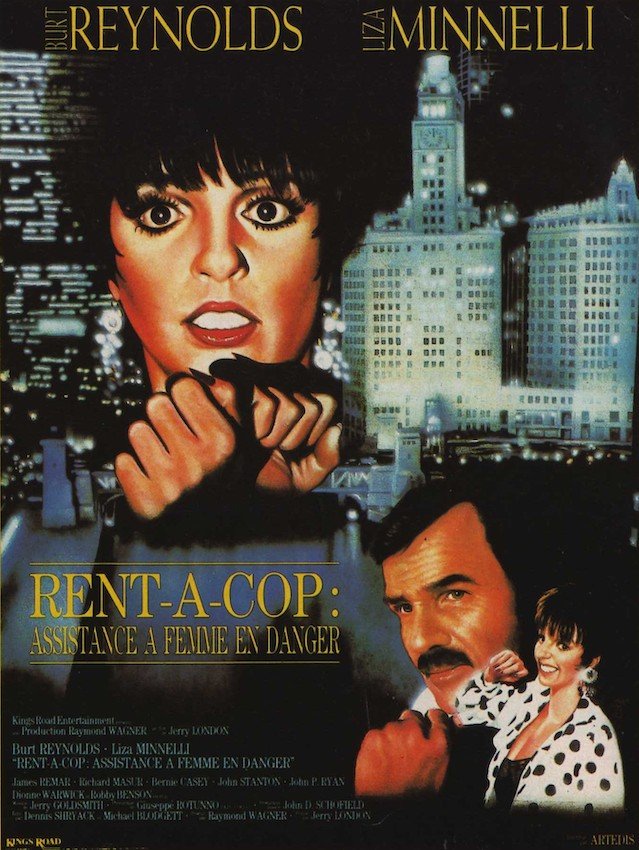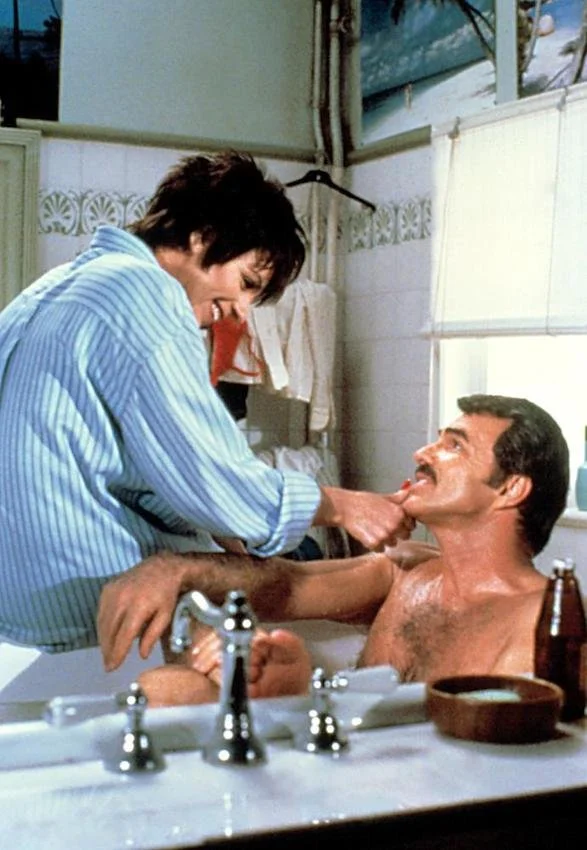RENT-A-COP (1987)
It is stating the obvious to say that Burt Reynolds was one of the all-time great movie stars. Like most of the greats, that does not necessarily mean he was one of the best actors of his generation (although he had more than his fair share of impressive turns), but that he oozed charisma and was smart enough to choose projects and collaborators that played to his strengths. Through the ‘70s, Reynolds perfected his swaggering, carefree, fun-loving persona. It did not matter if the film was comedy, action, a combination of those two genres, or the occasional drama, you could tell that Reynolds was having fun. His smile and laugh became as much of a trademark as his mustache and rotation of hairpieces.
But with Reagan’s America in the ‘80s, a new breed of action star rose to prominence that was all about law-and-order, the antithesis of Reynolds’ anti-authoritarian good old boy heroes who often faced off against corrupt cops and politicians.
Whether they mumbled about the scourge of crime like Stallone, issued clunky threats before performing a spin kick to the head like Norris, or cracked stupid one-liners in a heavy Austrian accent like Schwarzenegger, the new box office action champs all shared the same stone-faced aversion to old-fashioned traits like charm or wit.
Sure, their movies could have humor, but they often left that to the comic relief sidekick who would bite the bullet as the second act ended (admittedly, Schwarzenegger did at least seem to be in on the joke that his accent and hulking size were inherently ridiculous elements to build movies around). Perhaps spurred on by his increasing focus on directing and the decreasing grosses of both his action films and comedies, Reynolds made the decision to tamper with his screen persona and emulate the new action heroes.
The results of Reynolds trying to become a “serious” action star were as uneven as you would expect. He put on a grimace, playing a series of characters that looked miserable. While the quality of Reynolds’ new, “serious” action films range from perfunctory (HEAT, MALONE) to solid entertainment (SHARKY’S MACHINE, STICK), there is an off-kilter tone to them that has everything to do with watching one of the most charismatic movie stars of the ‘70s repress his natural charm. Even when he did a “throwback” performance such as in CITY HEAT, the result was a muddied mess since the tone of the movie played to the cranky strengths of his co-star Clint Eastwood.
At the same time that his action films increased in grim violence and borderline nihilism, his comedies suffered from an increase in Reynolds mugging for the camera, practically begging for laughs (BEST FRIENDS and THE BEST LITTLE WHOREHOUSE IN TEXAS, being notable exceptions).
Creative duds like PATERNITY, THE MAN WHO LOVED WOMEN, STROKER ACE, and CANNONBALL RUN II were not just damaging to Reynolds’ reputation for picking the right projects for his talents, but their decreasing box office returns mirrored his diminishing standing as a box office draw.
Finally, we come to RENT-A-COP.
By the time that Reynolds was shooting the film (in the winter of 1986-1987) his career as a movie star was fading, he was several years into a relationship that all parties admit was tumultuous at best, and he had turned 50. The dour attitude and hangdog face Reynolds wore earlier in the decade no longer seemed like an ill-fitting act. Life appeared to be taking an actual toll on a man who just six or seven years earlier seemed full of joy and without a care in the world.
Having actually matured into the grumpy cynic that he unconvincingly played for much of the decade, you would think that an action movie about a disgraced former cop protecting a call girl from a psychopathic killer would be a good fit for Reynolds. That is what makes it so odd that the tone of RENT-A-COP is that of a romantic comedy that just happens to include bloody killings, a conspiracy involving a powerful drug dealer, and a maniacal killer named Dancer (because the only thing he loves more than money and killing is—you guessed it—dancing).
For those of you unlucky enough to have never witnessed the fascinating train wreck that is RENT-A-COP, I will try to give a brief plot set up:
Reynolds is badass Chicago cop Tony Church. As the film opens, Church is about to make a huge cocaine bust in a swanky downtown hotel, but his best laid plans go awry when a third party in a motorcycle helmet busts through the door and guns down everyone in the room. The gunman then goes to the next room and tries to kill Della (Liza Minnelli), an expensive call girl who accidentally glimpsed his face. Church manages to pull Della out of the line of fire, saving her life, but letting the gunman get away. When his captain (the great John P. Ryan) all but accuses him of being in on the hit to steal the money and drugs taken by the gunman, Church quits the force in disgust.
After the killer makes another attempt on Della’s life, she tracks down Church, who she thinks of as the only person capable of protecting her since he has already saved her life once. Down on his luck, working security in a department store while dressed like Santa Claus, Church is reluctant to help the hyperactive, paranoid Della, even when she offers to pay him. Eventually Della worms her way into Church’s home because…she is a character played by Liza Minnelli? The movie is never entirely clear on the plot mechanics of getting these two characters under the same roof and director Jerry London seems content to rely on the perceived affection the audience has for Minnelli and understanding of rom-com formulas.
Where RENT-A-COP becomes interesting is that everyone involved seems to think the movie is something different. Minnelli is in a screwball farce where she plays everything to the back row as if it is a stage production. Reynolds is in a serious drama about an emotionally closed off man of violence trying to protect a woman he is confused by his feelings for. London thinks he’s directing a gritty action movie with plentiful use of guns, squibs, stabbings, and a perpetually sweaty, closeted, psycho-killer (James Remar) who just wants his money so he can be left alone to dance.
In reality, the movie is all of these things and none of them comes together in a coherent way. To his credit, Reynolds does try to engage with the “opposites attract” romantic comedy angle at times. There are brief flashes of his old easy charm when Minnelli slows down her performance and actually engages with her co-star, letting him find some affection for her often-grating character.
But instead of exploring a potentially interesting romance, much of the film is Minnelli cranking her alternately brassy and ditzy screen persona up to ten while London pushes the violence to ugly levels at time. Caught in between is Reynolds trying to add some pathos to a movie that is uninterested in anything approaching that kind of subtlety.
As much as I admire Reynolds for finding the sadness and regret in what could have been just another tough guy role, the truth is I find the erratic storytelling and tone of RENT-A-COP to be its best feature. The plot is predictable, but the details like the killer’s obsession with dancing (again, the character is literally named “Dancer”) and Church’s ultra-violent way of handling shoplifters in the department store scene lend discordant notes that keep the film from feeling like a rote exercise in genre mechanics. RENT-A-COP is paradoxically a movie that is better and more watchable the worse the storytelling becomes.
Instead of a breezy comedic action film that returned its star to what he did best, RENT-A-COP was a critical and financial bomb. For Reynolds, it marked the end of his career as an action hero. Despite impressive performances in critically acclaimed movies like BREAKING IN and BOOGIE NIGHTS, he retreated to a stint as a sitcom star and settled into a long run in character parts on TV and in the movies. These roles often traded on his longtime screen persona, allowing him at times to tap fully back into the charismatic good old boy charisma that made him a star, but mostly felt like he was simply cashing a paycheck.
While RENT-A-COP has a bad reputation, it is weirder than you might expect. At the very least, it provides an intriguing glimpse at an alternative career path where Reynolds learned to combine his easy-going likability with mature introspection. If for no other reason than that, it is worth a look this holiday season.



